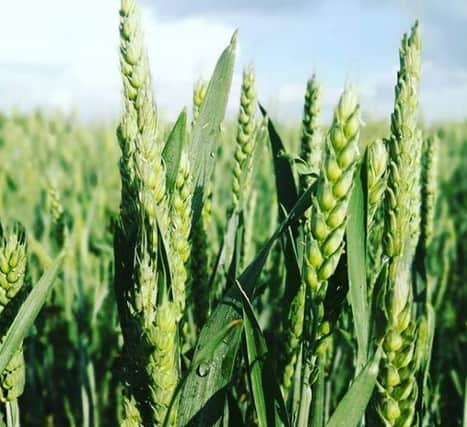University of Portsmouth scientists develop new farming techniques to improve global food production


University of Portsmouth scientists have teamed up with the Royal Botanic Gardens to help farmers increase crop yields, particularly in parts of the world where the impact of climate change is having a detrimental impact on food production.
Dr Rocio Perez-Barrales, senior lecturer at the School of Biological Science, said: ‘When the human race first domesticated crops, the climate and environment were completely different – what we are seeing in the last 50 years is a rapid change in climate.
Advertisement
Hide AdAdvertisement
Hide Ad‘The world is now frequently facing catastrophic climate events like droughts and in the UK we are now seeing some crops being harvested up to a month earlier than they used to be.’
The scientists believe that at the heart of the problem is a lack of genetic diversity due to a selective growing process in which previously wild plants were selected for desirable traits for food production which has led to a lack of adaptability to deal with changing climates and conditions.
Farmers are now being encouraged to re-look at wild relatives of domesticated crops which may now be better suited to new conditions as well as cross breading with some of these wild relatives to genetically develop characteristics better able to cope with new conditions.
Dr Perez-Barrales added: ‘Artificial selection and farming have led to quality improvements in foods such as meat, milk, and fruit. However, over hundreds of years, there has been a negative impact to this process - a reduction in plant genetic diversity.
Advertisement
Hide AdAdvertisement
Hide Ad‘At the same time climate change is altering the way crops behave. Crops have lost so much genetic diversity they are less able to adapt and respond to climate change.
‘An alternative for plant breeders is to use wild crop relatives and use the natural genetic variation in those species that protects them against the natural enemies.
‘Farmers should look at wild crop relatives to see what traits can be improved to make crops better adapted to the current environmental challenges.’
A message from the Editor, Mark Waldron
Thank you for reading this story. The dramatic events of 2020 are having a major impact on our advertisers and thus our revenues.
The News is more reliant than ever on you taking out a digital subscription to support our journalism. You can subscribe here for unlimited access to Portsmouth news and information online.
Every subscription helps us continue providing trusted, local journalism and campaign on your behalf for our city.
Comment Guidelines
National World encourages reader discussion on our stories. User feedback, insights and back-and-forth exchanges add a rich layer of context to reporting. Please review our Community Guidelines before commenting.